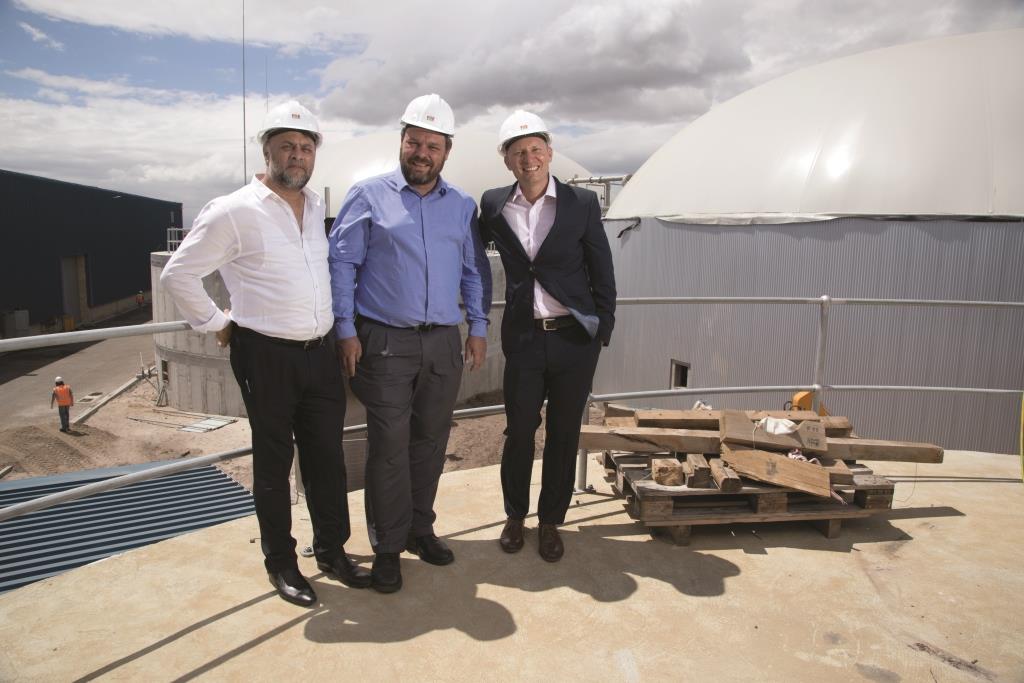It doesn’t look like much but it’s the first of its kind on African soil that could turn a stinking problem into a profit. This $400-million plant takes the black rubbish bags of Cape Town, with their rotting food and heaven knows what else, and converts it into gas – methane and carbon dioxide – for sale.
The plant, owned by New Horizons Energy, a subsidiary of Clean Energy Africa, is the fruit of five years of planning with family-owned Waste-Mart, one of the largest waste collectors in the city. It was also backed by African Oxygen (Afrox) and the Industrial Development Corporation (IDC).
This machine was born of a shortage of holes in which to put rubbish in Cape Town.
“WasteMart brings in 500 tons of waste a day. Cape Town produces 2 million tons a year. It goes to landfills sites and sits useless. We plan to convert 10 percent of Cape Town’s waste into something. The city of Cape Town, in effect, has become our mine,” says New Horizons Energy CEO, Egmont Ottermann.

Preparation of apricot juice for the plant.
Loading...
It is a 15-year dream Ottermann has realized. He says he first came up with the idea when looking at how to make gas that is produced in the cement industry.
At the heart of this are millions upon millions of bugs that live inside the huge vats and eat the rubbish to produce the methane. In their teething days they were fed nothing but cow manure before moving on to 50 tons of apricot juice. The bugs will mature in May and be strong enough to chomp their way through waste, turning it into valuable gas.
“We’re very excited about the plant. It can help to replace imported fuels by taking the waste and making gas out of the resource. Most importantly, it’s creating jobs. We also believe that there is massive opportunity for replication throughout South Africa and Africa,” says Raoul Goosen, the IDC’s Green Industry Specialist, who played a vital part in securing a 60% finance backing for the project.
The plant will release 20 tons of carbon dioxide and 540 gigajoules of biomethane, which Afrox will buy.
“For Afrox it’s a sustainable green offering that our customers are looking for. It’s a good news story from birth to graveyard in terms of managing a waste stream,” says Silvia Schollenberger, Afrox Head of Commercial and Projects.
“We found there was more value to the industries of biogas, rather than energy. Cape Town has grown tremendously over the past 10 years. Afrox has seen shortages of carbon dioxide and methane, especially in summer, so this is a good idea on various levels,” says Ottermann.
Ottermann believes there’s more rubbish than time.
“It’s not the silver bullet solution, but it’s a start. The idea is to use 100 percent of the landfill. We’re enhancing the recycling economy. There’s great potential in the future to make products such as plastic bricks and roof tiles. Over the lifetime of this plant, we expect many more little industries to be established close to the plant, so that we can drive zero waste to landfill.”
Where there’s muck there’s brass – there is also gas.
Loading...
